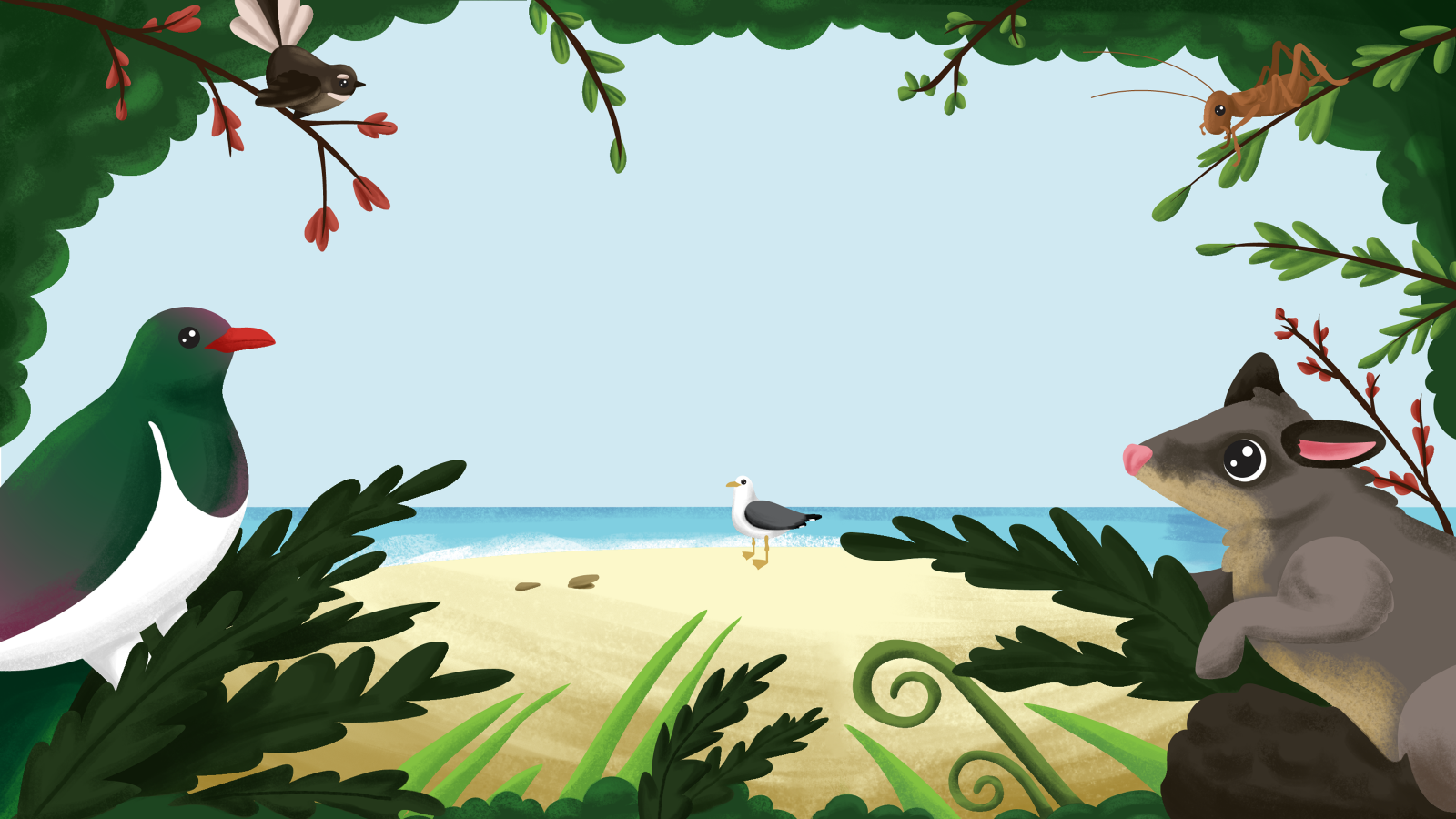
Species common in Aotearoa just two to three generations ago—including the Toheroa, a taonga shellfish which is the focus of Tessa’s thesis—have been commercially overfished, and are now rarely seen. Further inland, our native species are being decimated by rats and stoats.
“There are incredible numbers of pest species in our bush—you go there and see how quiet it is when it shouldn’t be quiet. You shouldn’t be able to hear yourself think because there’s so many birds,” says Ellen.
It’s a gloomy picture but the researchers say meaningful change can be achieved through the combined benefits of technology, from novel radio tracking technology and aquaculture, to drawing on people power and mātauranga Māori (Māori knowledge).
Tessa, who is completing her Master of Science in Marine Biology says the Toheroa was once a regular feature on her hapu’s menu. “We were known for them. When people would come to our marae, we’d serve Toheroa fritters, or soup. They were a massive part of our hapu’s way of life … my grandad doesn’t remember there ever not being any―and yet I’ve never seen a live one.”
Looking after the oceans to ensure kaimoana remain a viable source of protein for New Zealanders must involve conversations with local iwi about what they understand about ecosystems and how species interact, she says.
Ellen, who is completing a Master of Science in ecological restoration and leads the Aorangi monitoring project in South Wairarapa, agrees and says, “historically and globally, Western science hasn’t recognised the value in traditional ecosystem knowledge and that is an utter mistake”.
Heartened by the community spirit generated after the Government announced Predator Free 2050, she believes there is “something nice about a big dream and a whole country rallying together”.
“I would like listeners to know it’s not hopeless. It does seem pretty grim sometimes … but there’s definitely still hope, and science and ecology needs your voice.”
